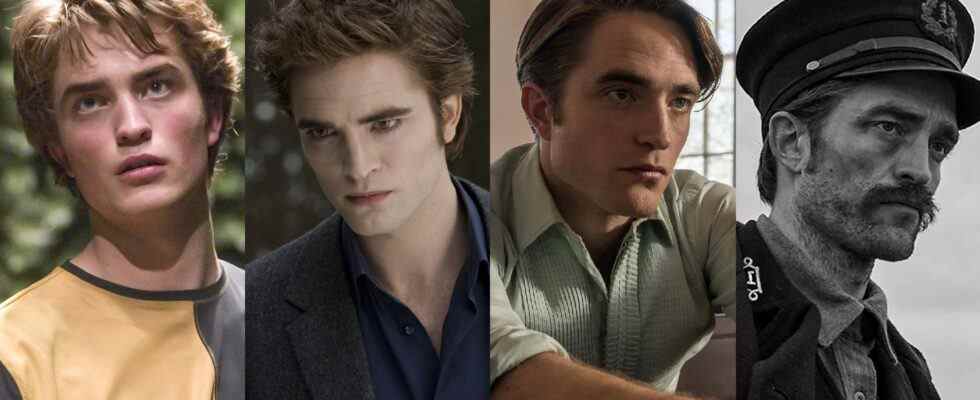Robert Pattinson’s cinematic career so far has been the definition of an upward spiral, but how do Robert Pattinson’s movies rank from worst to best? The year 2008 enwrapped Pattinson in mega-stardom when he was cast as the brooding, glistening vampire Edward Cullen in all five movies of The Twilight Saga. However, instead of basking in the limelight as most would, Pattinson plunged himself right into the waters of indie and arthouse cinema, going on to work with the likes of Werner Herzog (Queen of the Desert), David Cronenberg (Cosmopolis), and Claire Denis (High Life).
Over the past two years, Robert Pattinson’s movies have made a return to the mainstream, which feels like a natural transition, belting out one stellar performance after another in films like Eggers’ psychological horror, The Lighthouse, and Netflix’s noir-thriller, The Devil All The Time. Today, all eyes are on him, as his latest performance is the titular DC superhero Batman in Matt Reeves’ film, The Batman.
Prior to his big break in Twilight, Pattinson starred in numerous supporting roles, including the German TV film Ring of the Nibelungs, Mira Nair’s Vanity Fair (although his scenes were deleted and only appear in the DVD version), and the 2006 psychological thriller, The Haunted Airman, for which he earned favorable reviews. From indie films to arthouse dramas and young adult franchises, Pattinson has done it all in his career. Here’s every Robert Pattinson movie ranked from worst to best.
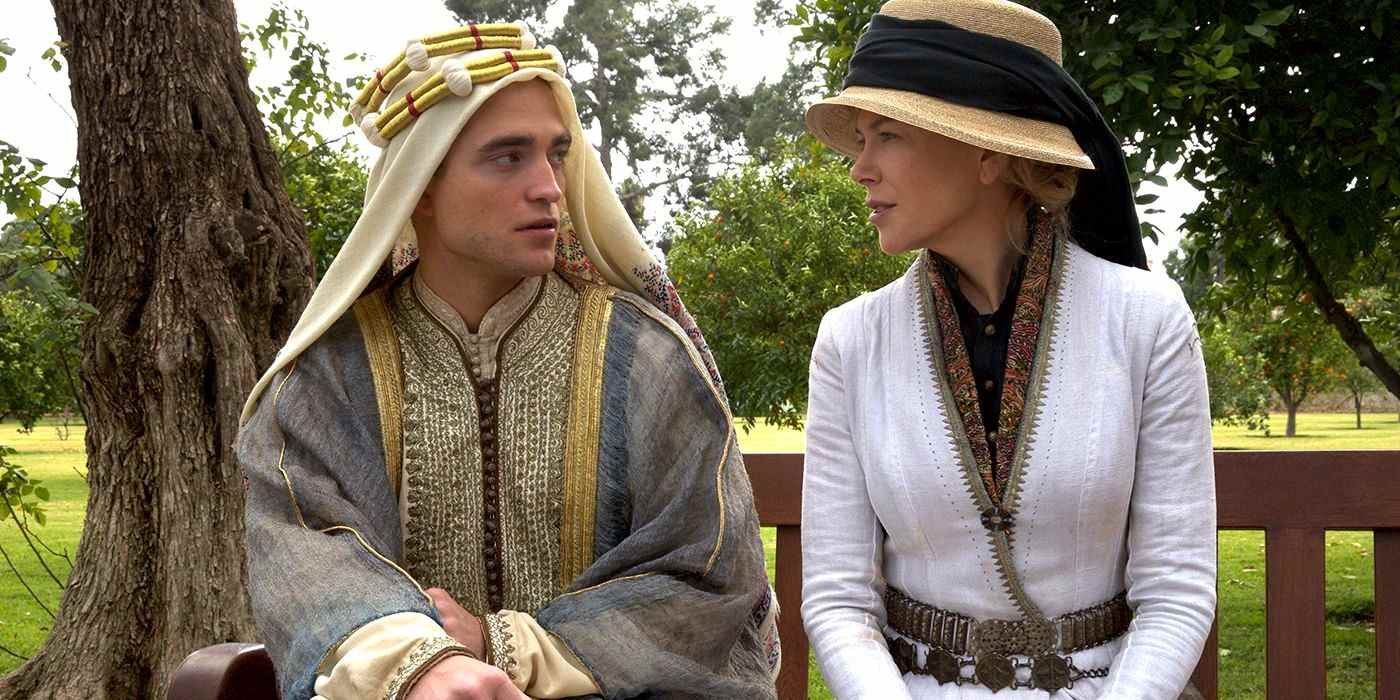
Based on the life of British archaeologist and cartographer Gertrude Bell, Werner Herzog’s 2015 biopic, Queen of the Desert, received mostly negative reviews and tanked in the box office. Apart from Pattinson, the film starred Nicole Kidman, James Franco, and Damian Lewis, who, despite their efforts, failed to weave the narrative together into a comprehensive whole. Pattinson appears briefly as renowned archaeologist and diplomat, T.E. Lawrence, but manages to lend an aura of significance to the role. The Robert Pattinson movie lacks Herzog’s trademark eccentricity, which is almost always tinged with genius, such as the likes seen in Nosferatu the Vampyre, and Aguirre, the Wrath of God.
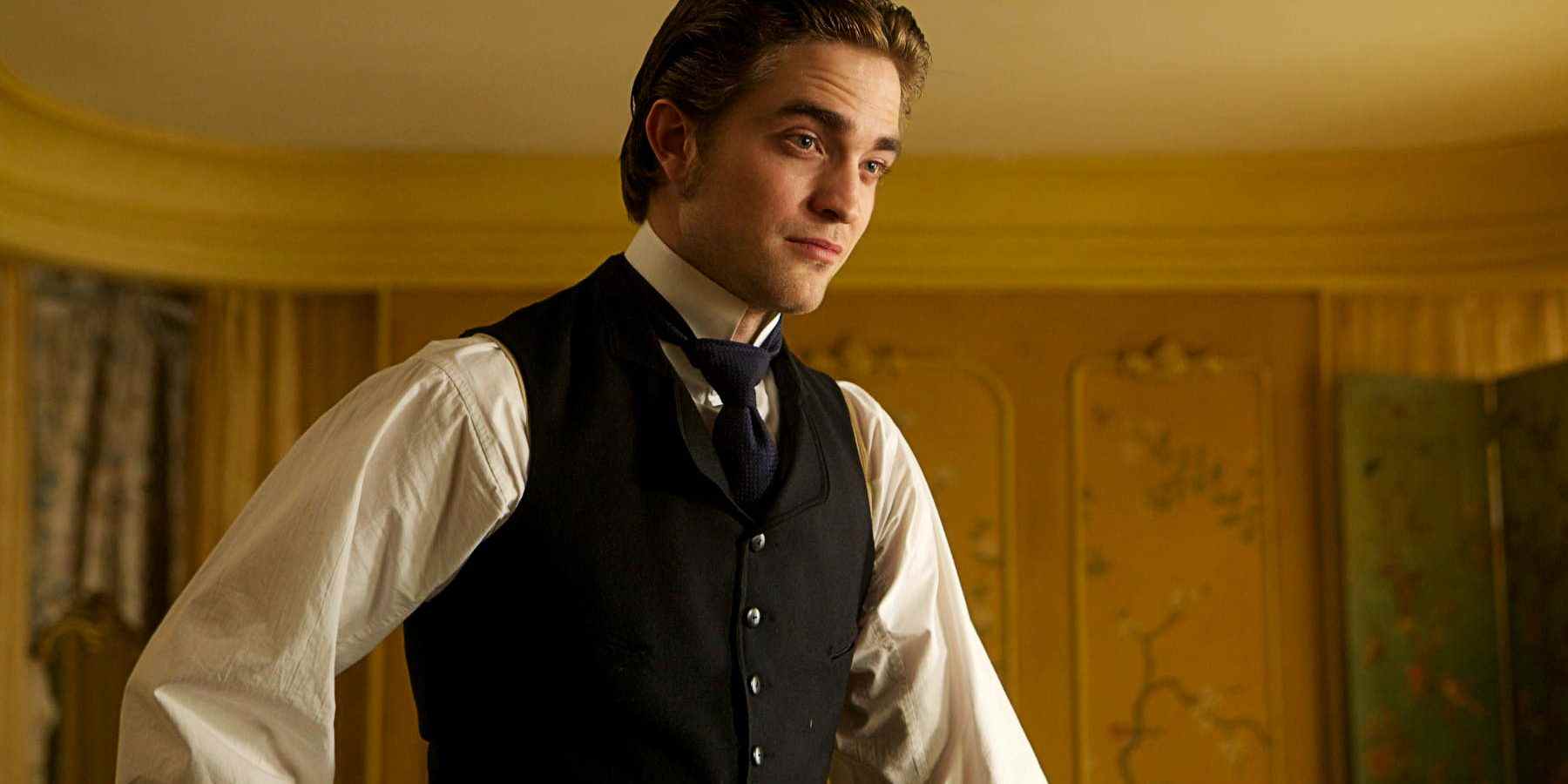
In Declan Donnellan and Nick Ormerod’s Bel Ami, Robert Pattinson is cast as Georges Duroy, the protagonist of Guy de Maupassant’s 1885 French novel of the same name. Having served in the French army in Algeria, Duroy arrives in Paris with the hopes to climb up the social ladder, and he goes on to garner explosive public recognition as editor of an influential Parisian newspaper. While Maupassant carves Duroy’s transformation as drastic and awe-inspiring in the Robert Pattinson movie, it seems believable, simply because of his Machiavellian cunning and wicked charm. Pattinson’s portrayal of Duroy lacks vitality and conviction, which, as Roger Ebert put it, marks “the downfall of the film.”
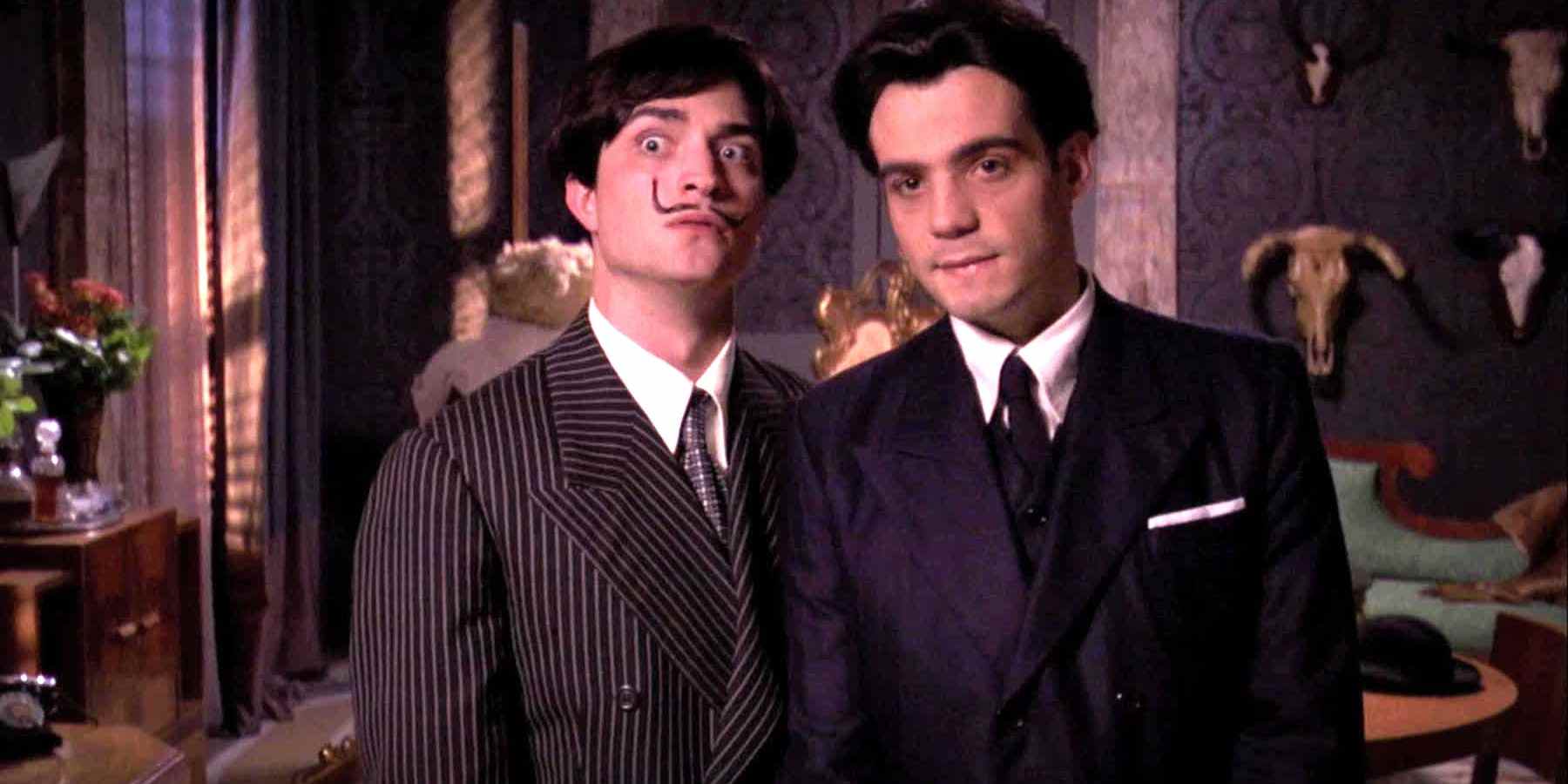
Hinged on a premise brimming with potential, Little Ashes could have been a daring glimpse at repressed sexuality between surrealist painter Salvador Dalí and Spanish poet Federico García Lorca. Instead, the Robert Pattinson movie flounders, meanders, and finally loses its way, despite being set against stunning cityscapes and rural backdrops. Pattinson plays Dalí with an affected accent and evident uncertainty, which seems much akin to going through the motions for the sake of it. Admittedly, Little Ashes is sprinkled with poetically poignant moments, such as when Dalí is evicted from the Surrealist movement or when Lorca exudes a kind of vulnerable innocence in certain scenes. However, in the end, the film fails to impress.
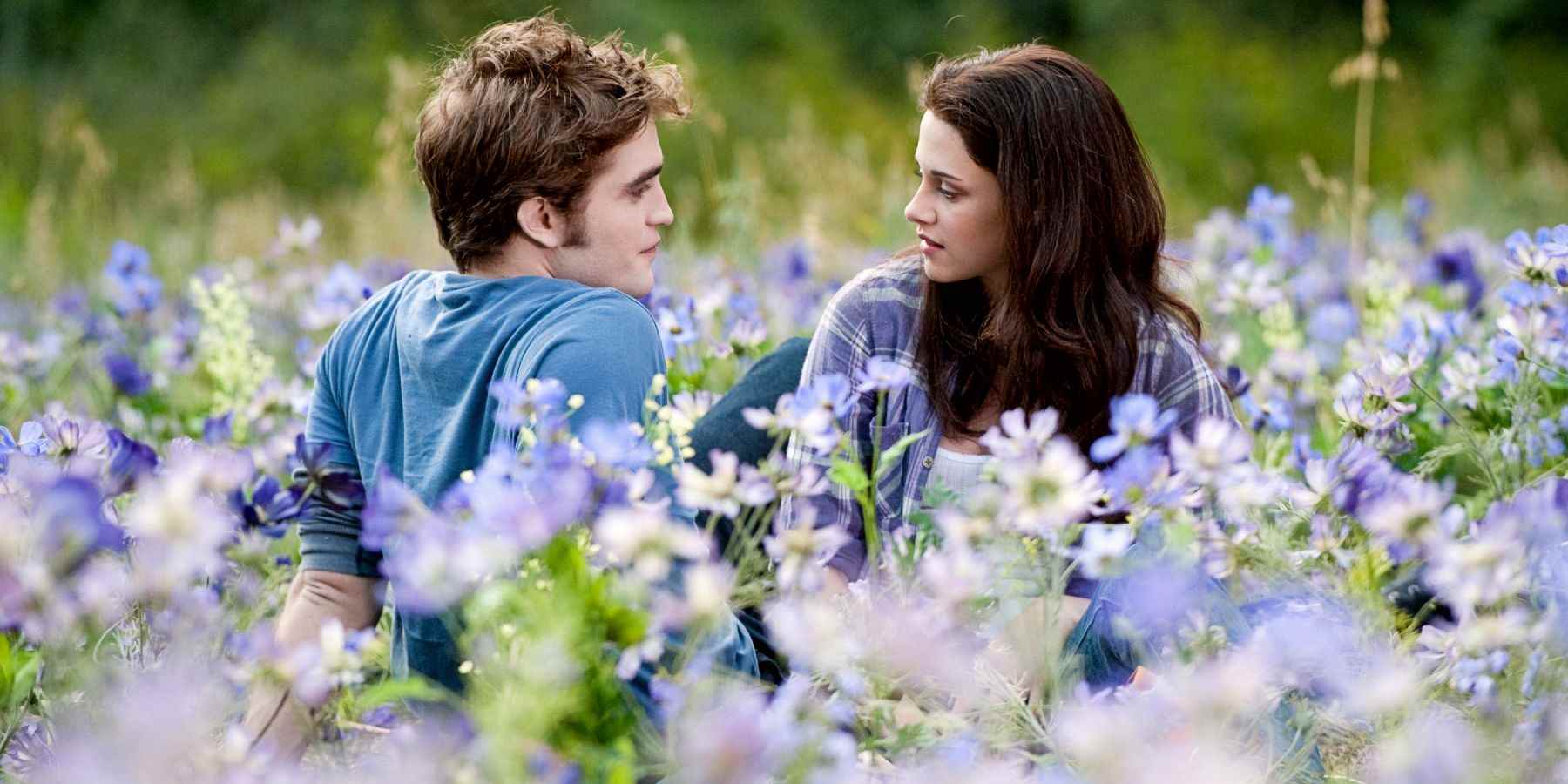
The Twilight Saga warrants no introduction, being a five-part fantasy romance series that grossed over $3.3 billion worldwide, helmed by none other than Pattinson’s rendition of Edward Cullen and Kristen Stewart’s Bella Swan. While the series as a whole has been fairly popular at the box office, Twilight’s narrative and performances come off as inconsistent and sometimes border on parody. When compared to the source material, The Twilight Saga pales in comparison, while heightening the melodrama, especially in New Moon and Breaking Dawn – Part 1. Pattinson says that Twilight is his most difficult role due to the fact that filling the shoes of an immortal vampire for five movies straight can eventually become hackneyed and uninspiring, coupled with the absence of genuine, meaningful stakes.
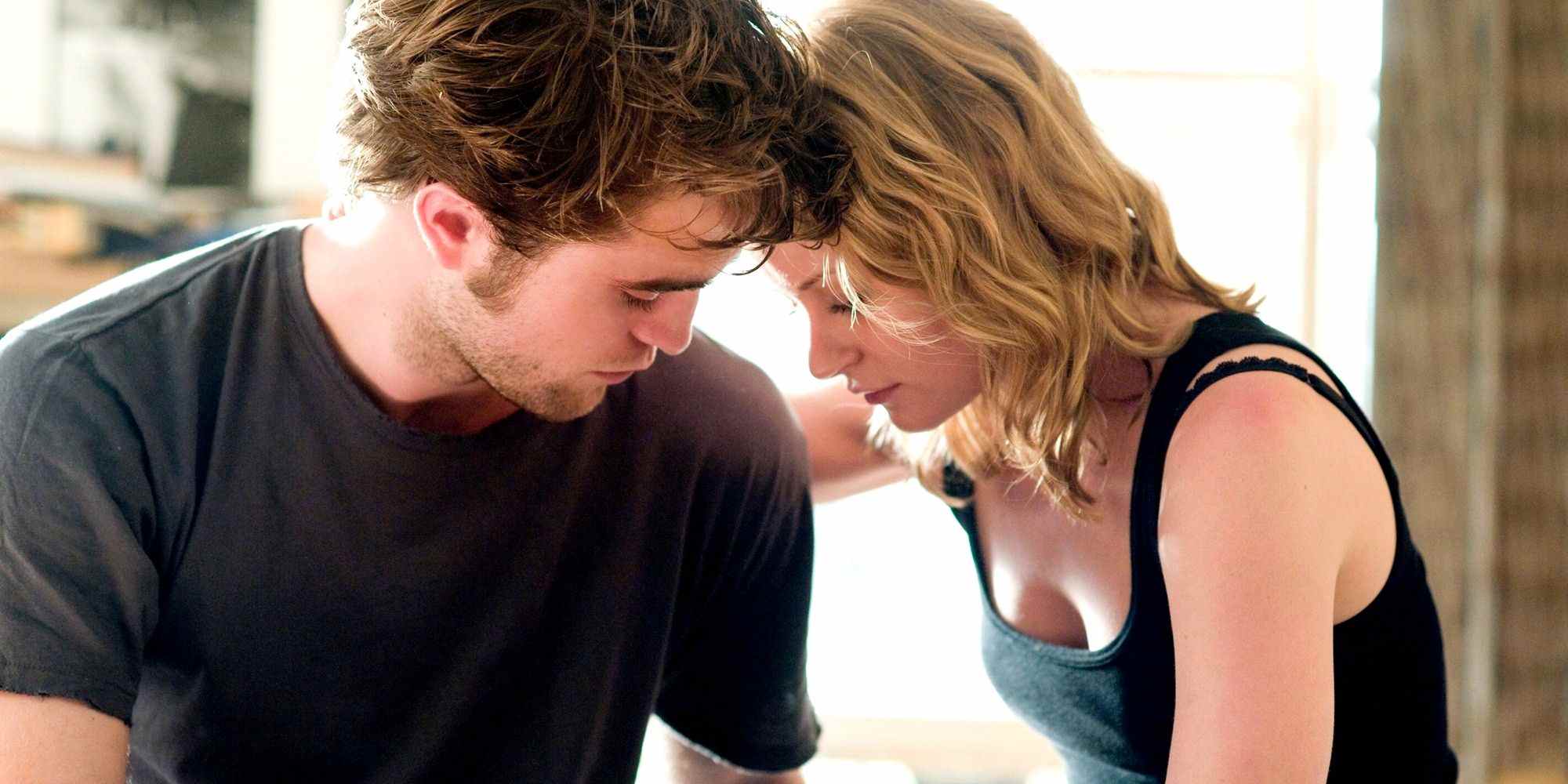
Allen Coulter’s 2010 coming-of-age drama, Remember Me garnered mostly negative reviews due to its sluggish pace and ending, while it starred Pattinson, Emilie de Ravin, Chris Cooper, Lena Olin, and Pierce Brosnan. While certain junctures in the Robert Pattinson movie are heartfelt and the chemistry between Pattinson and de Ravin exudes genuine charm, Remember Me suffers from a misguided attempt to imbue a lackluster story with the heavyweight of real-life tragedy, which ultimately mars character motivations. The twist ending can be distasteful for some, owing to the fact that it aims for profundity without substance – however, Pattinson’s performance as Tyler is sincere and believable.
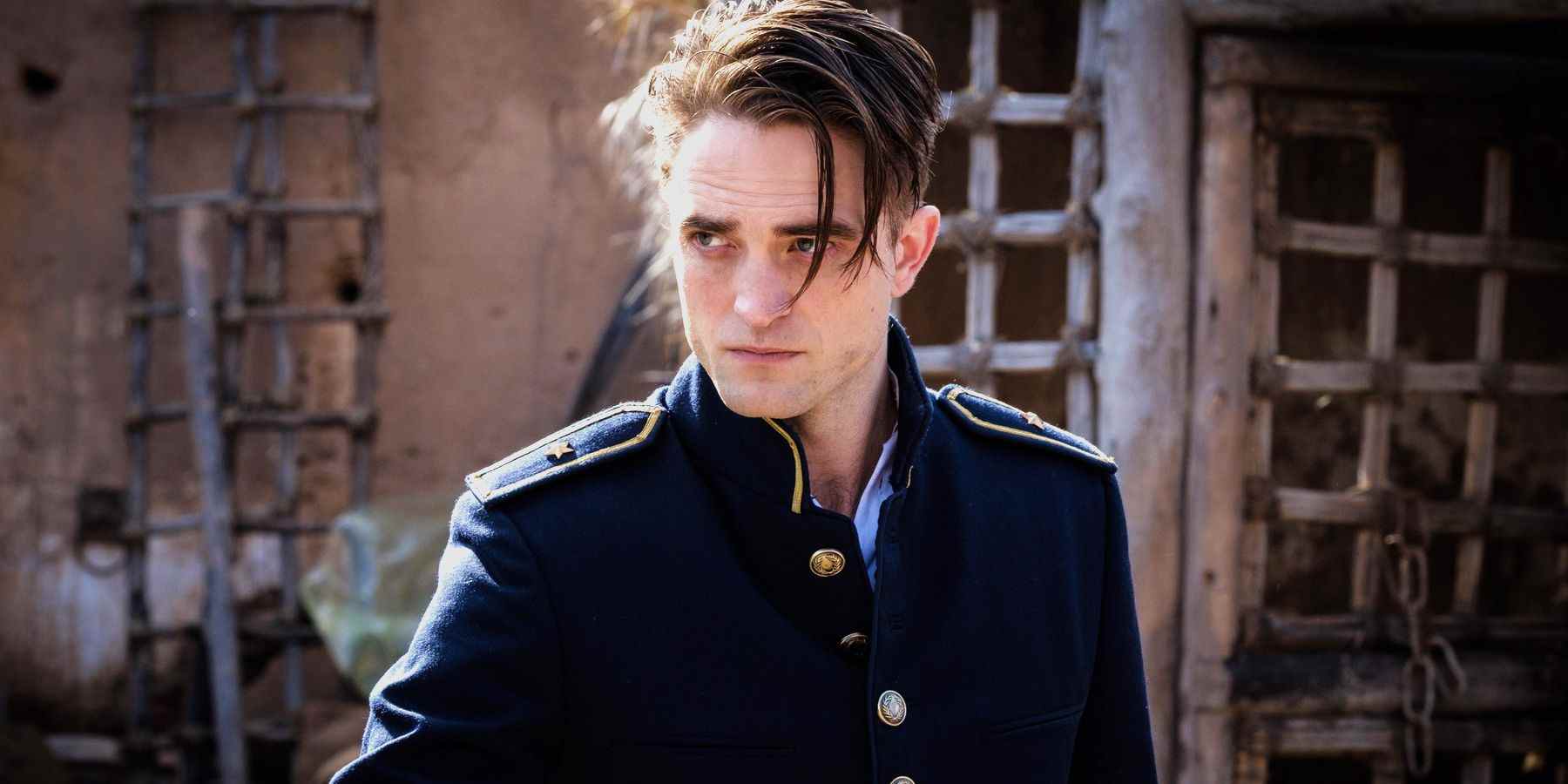
Ciro Guerra’s Waiting for the Barbarians is a 2020 action drama, based on J.M. Coetzee’s namesake novel, which draws from the author’s experiences in apartheid-era South Africa, which he reframes into a fictional desert setting. The Robert Pattinson movie has some strong performances from Johnny Depp as Colonel Joll and Mark Rylance as The Magistrate, along with a competent portrayal of Officer Mandel by Pattinson in a supporting role. Nevertheless, if one were to dissect the film’s core, the setting, both historical and geographical, seems too vague, albeit beautifully shot.
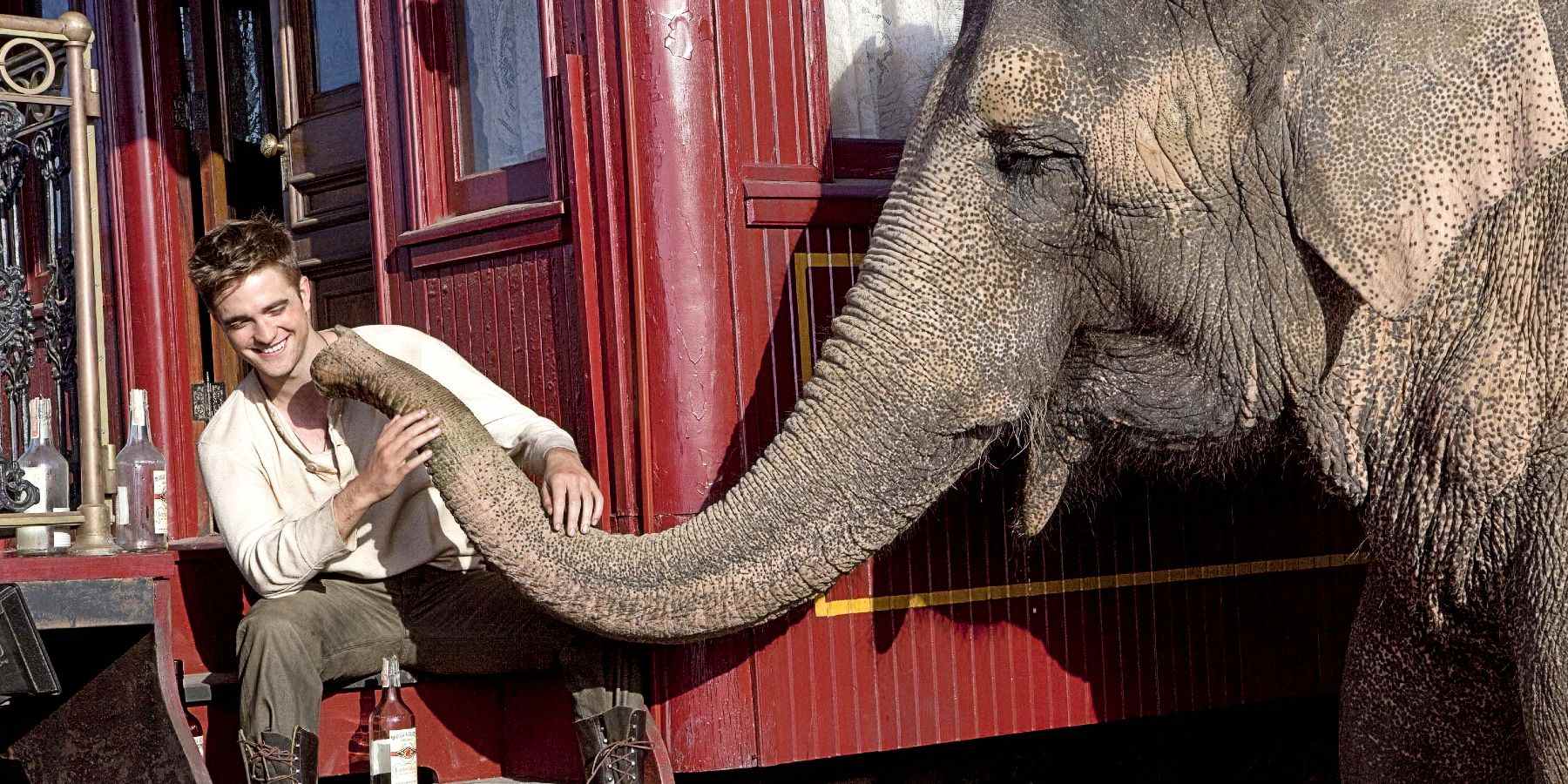
Francis Lawrence is best known for directing three out of the four The Hunger Games films, and the post-apocalyptic horror I Am Legend. Lawrence’s Water for Elephants is a romantic drama, starring Robert Pattinson, Reese Witherspoon, and Christopher Waltz, and it garnered mixed reviews. The Robert Pattinson movie set in a 1930s circus is filmed in beautiful vignettes and retells Sara Gruen’s spectacular 2006 circus tale to good effect. The only bone of contention for Water for Elephants is the lack of chemistry between the leads, especially Witherspoon and Pattinson, making their forbidden affair lack agency and appear contrived.
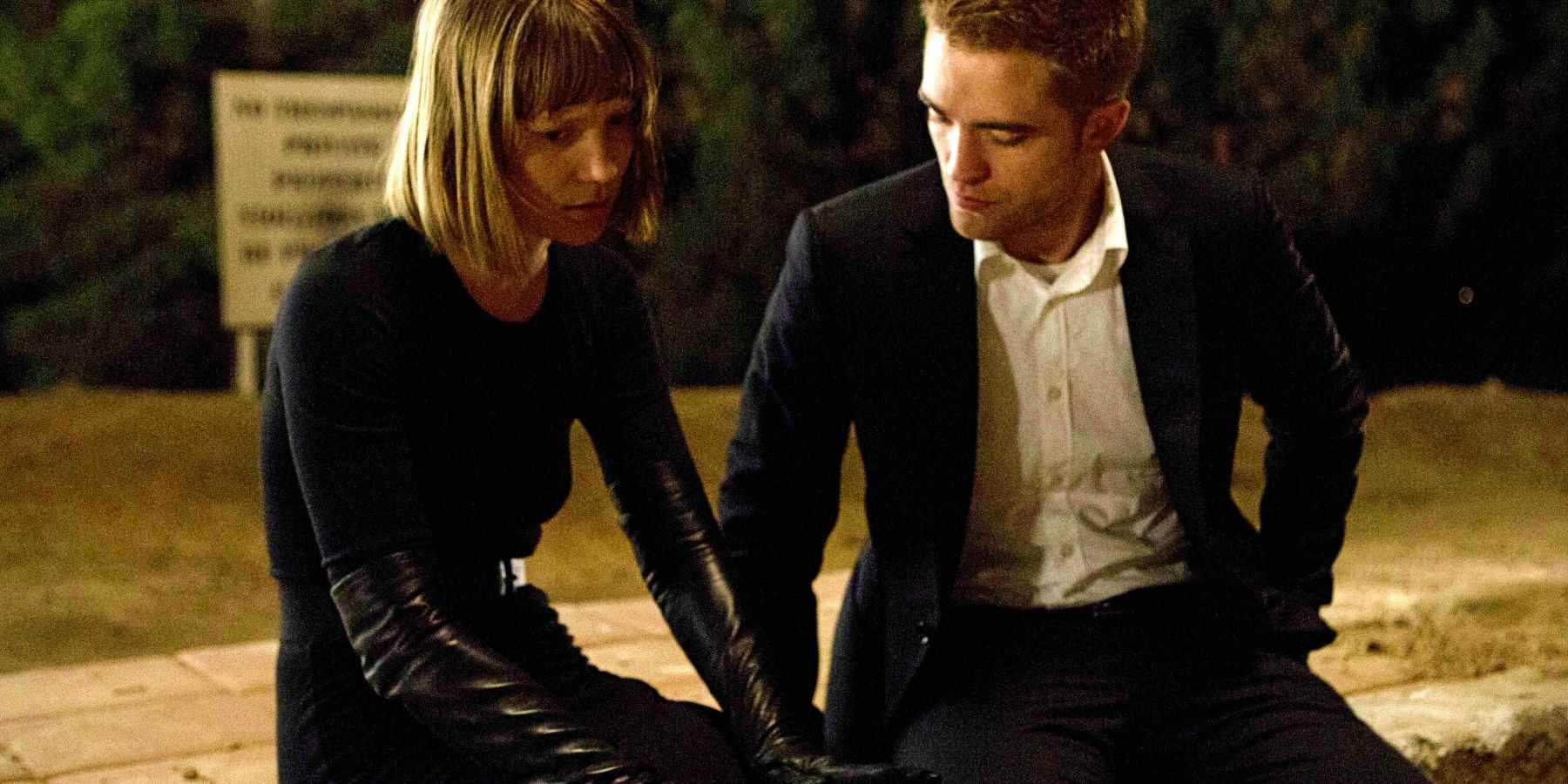
Starring Julianne Moore, Mia Wasikowska, John Cusack, and Robert Pattinson, David Cronenberg’s Maps to the Stars is a satirical drama film with praiseworthy performances and a hyperreal aura that is deeply Cronenbergian, as seen in Dead Ringers. The Robert Pattinson movie delves into the unsavory underbelly of show business and does not hold back in expressing its venomous scorn. While Moore is spectacular, almost in a visceral manner, Robert Pattinson plays struggling actor Jerome Fontana with just the perfect amount of subtlety.
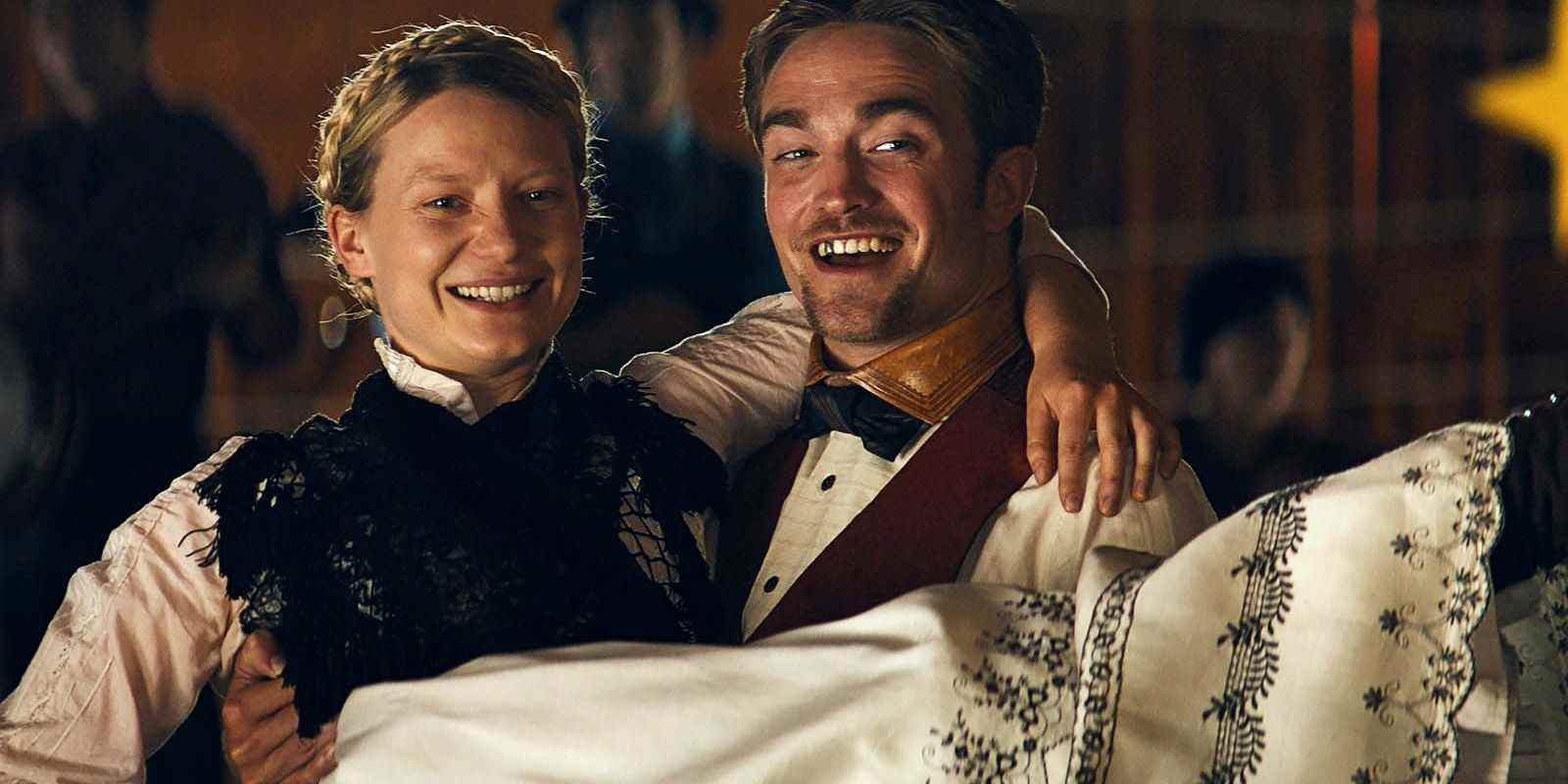
An American Western comedy by David and Nathan Zellner, Damsel pairs Pattinson with Mia Wasikowska in an anti-quest story rife with unexpected twists and a refreshing dose of humor. Set in a coastal shantytown, the Robert Pattinson movie opens with Samuel Alabaster (Pattinson), looking for a preacher man, whereas Wasikowska’s Penelope assumes center-stage in the second half, proving that she is not the damsel in need of saving. Pattinson wears Samuel’s cloddish, good Samaritan aura with ease, bringing in a special brand of foolish naivete as he croons a love ballad with fervor. All in all, Damsel might be too tongue-in-cheek for its own good, but the film does a commendable job in capturing the essence of the Old West and evoking a rare kind of beauty true to the genre.
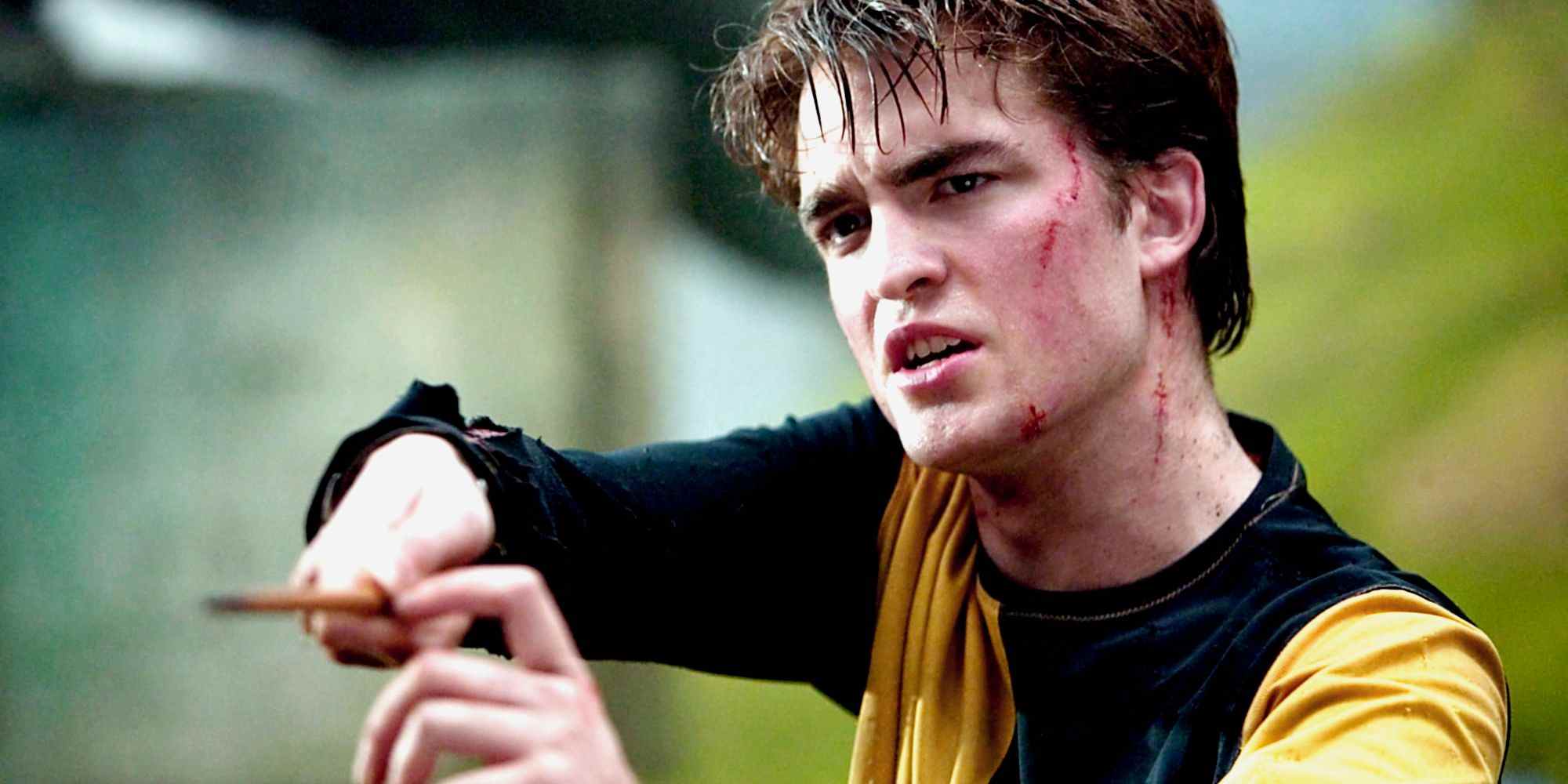
The fourth installment of the beloved Harry Potter franchise sees Robert Pattinson as Cedric Diggory. Goblet of Fire zeroes in on the Triwizard Tournament, which sets up the premise for a host of new characters, which include students from Beauxbatons and Durmstrang, and Hogwarts’ very own Cedric Diggory. Pattinson fleshes out Diggory’s boyish charm pretty well, which leaves even those not familiar with the books invested in his character. In the Robert Pattinson movie, Cedric’s death carries a significant amount of weight, as it is a testimony to Voldemort’s return and his unflinching cruelty – making it a turning point in the narrative and Harry’s journey as a whole.
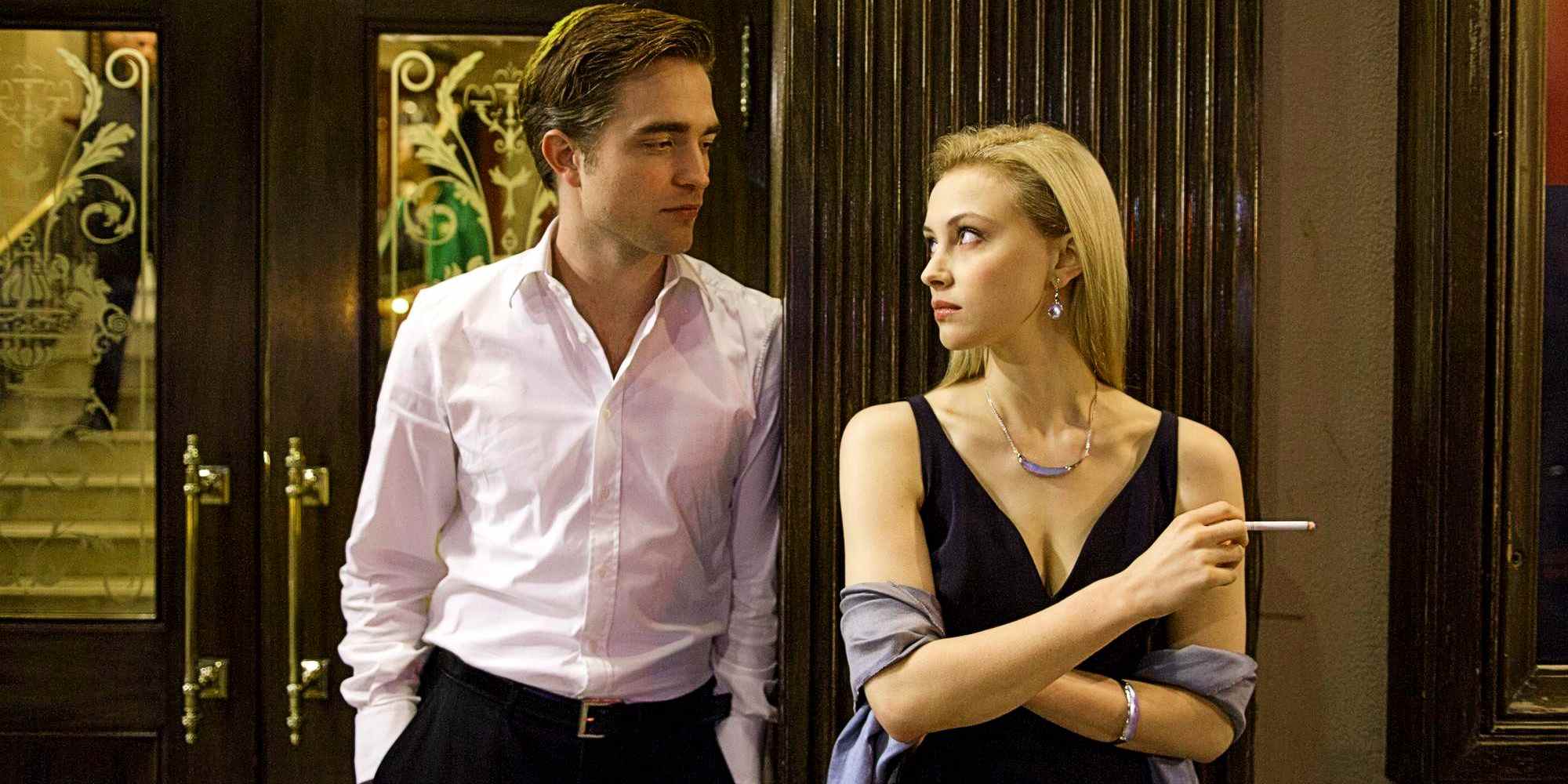
David Cronenberg’s 2012 drama-thriller, Cosmopolis, is based on a novel by Don DeLillo and stars Pattinson as billionaire currency speculator Eric Packer, alongside Paul Giamatti, Samantha Morton, Sarah Gadon, Mathieu Amalric, and Juliette Binoche. The result is a psychologically complex foray into the vapid soullessness that often pervades the 1%, wherein Pattinson’s performance is sensational, as he channels a strange mix of volcanic anxiety and self-depreciation that roots his presence center stage. Critics showered the Robert Pattinson movie with mostly positive reviews, likening it to a coldness that is the very opposite of the vibe in Cronenberg’s 1999 sci-fi thriller, eXistenZ.
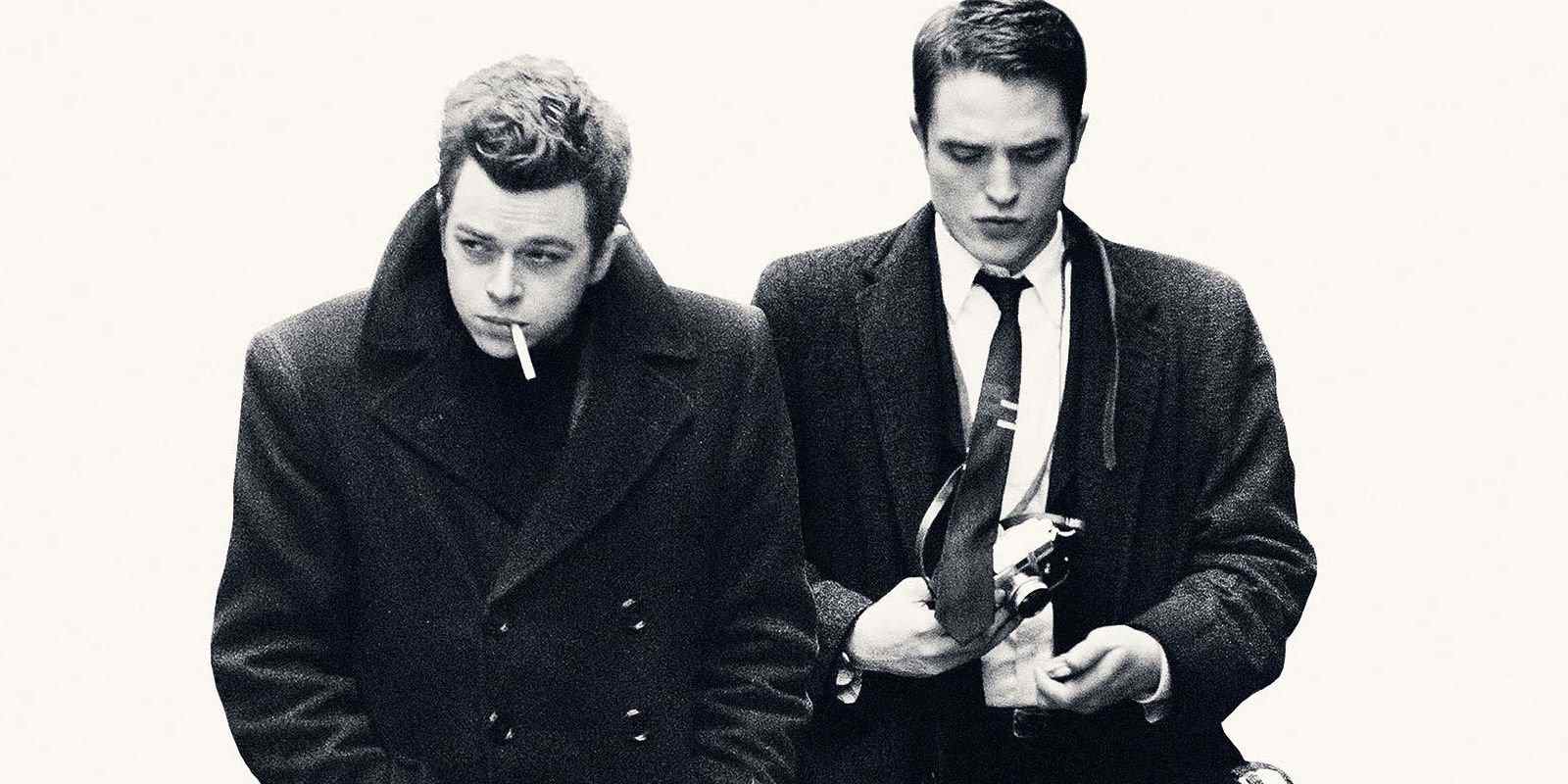
Anton Corbijn’s biographical drama, Life, is based on the friendship between photographer Dennis Stock and actor James Dean, as portrayed by Pattinson and Dane DeHaan respectively. The Robert Pattinson movie peers into how photography as a medium holds the ability to transform human interaction and is an endearing, yet charged camaraderie tale that is fascinating in more ways than one. DeHaan plays James Dean with a twist of his own, much like his performance as Lucien Carr in Kill Your Darlings, while Pattinson brings a strong brand of restlessness overrun with guilt and anxiety to Stock’s character, which works well for the film.
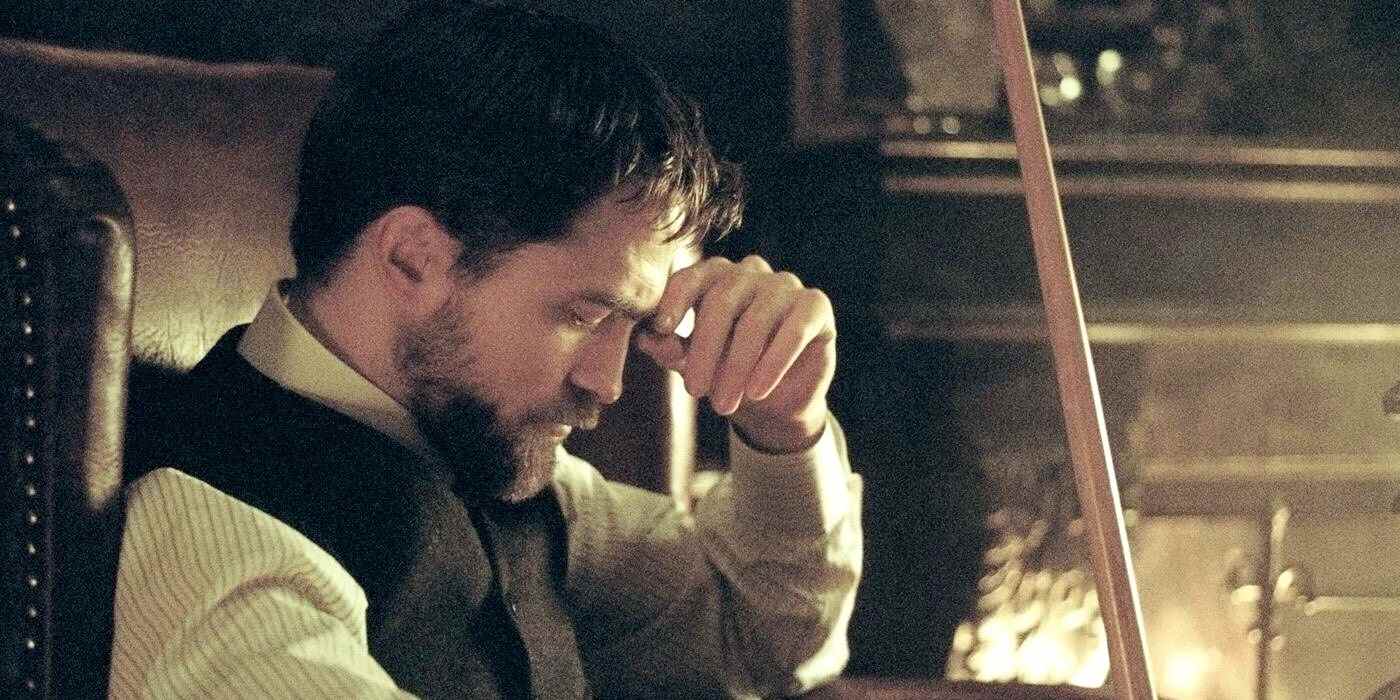
Being Brady Corbet’s feature directorial debut, The Childhood of a Leader is loosely based on Jean-Paul Sartre’s 1939 story and is an imagined tale of the dysfunctional and turbulent childhood of someone fated to become a fascist leader. This petulant 10-year old, Prescott, is both privileged and doomed at the same time, and one sees Pattinson in the role of the child’s family friend, Charles Marker, a journalist and free-thinking individual. Pattinson plays Marker with nuanced elegance, and Corbet pulls off a clever twist – Pattinson also plays the adult Prescott, whose roots are submerged in unhappiness, which he compensates for through the brutal imposition of power. Overall, this Robert Pattinson movie is an enigmatic piece showcasing the dark, moody layers of would-be fascist’s childhood.
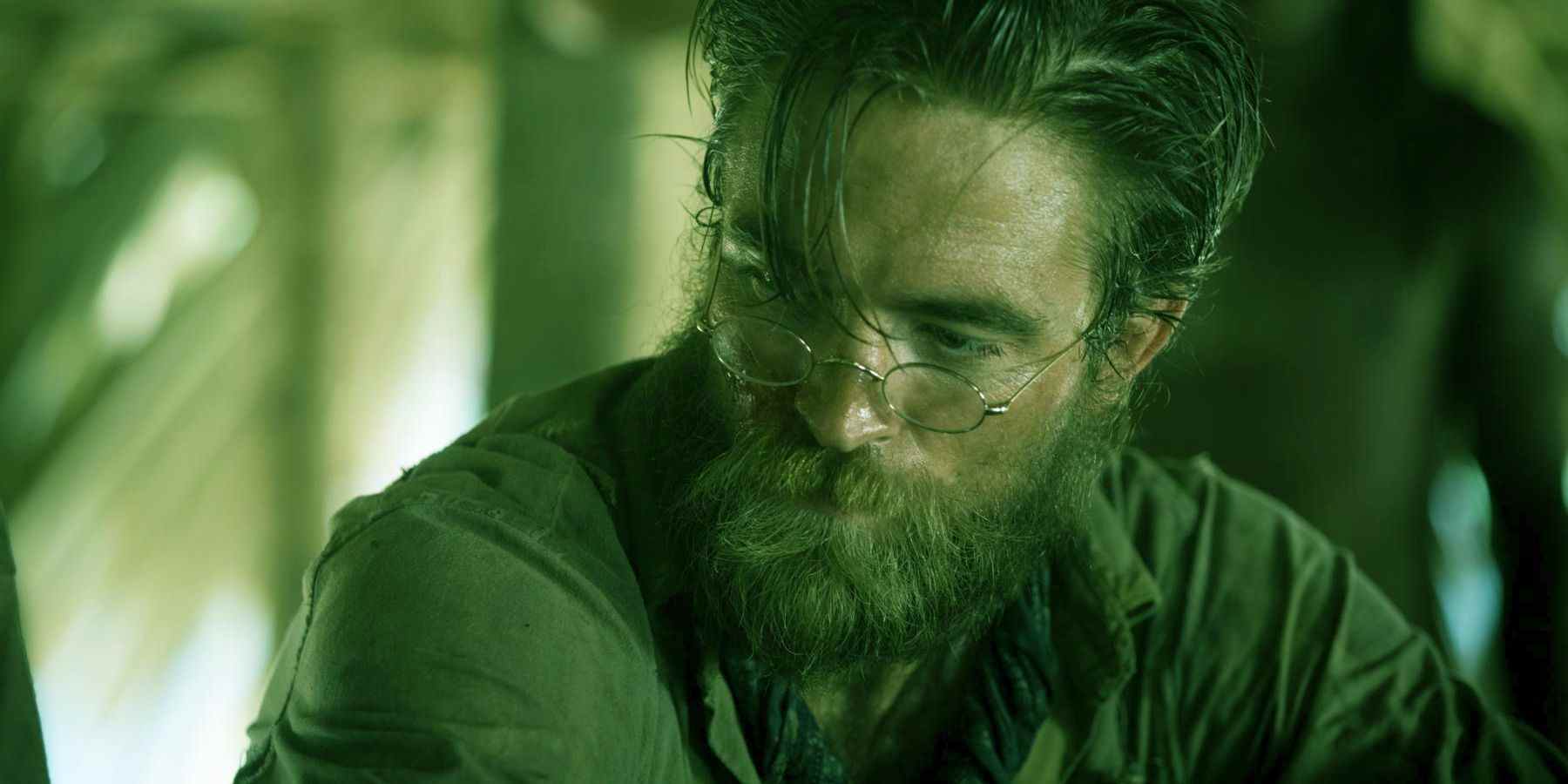
James Gray’s The Lost City of Z reflects the real-life events surrounding the British explorer Percy Fawcett (Charlie Hunnam), who journeyed to Brazil to search for an ancient city in the Amazon. Pattinson plays Fawcett’s best friend, Corporal Henry Costin, and it is a treat to watch him assume the role of an obsessive explorer. However, it is Hunnam who belts out a masterful performance as Fawcett, instilling the role with charm, and the film treats the subject matter with tact and is shot beautifully. In the Robert Pattinson movie, he complements Hunnam’s presence in an understated, yet essential way, as audiences are bound to closely observe the real-life character’s every move.
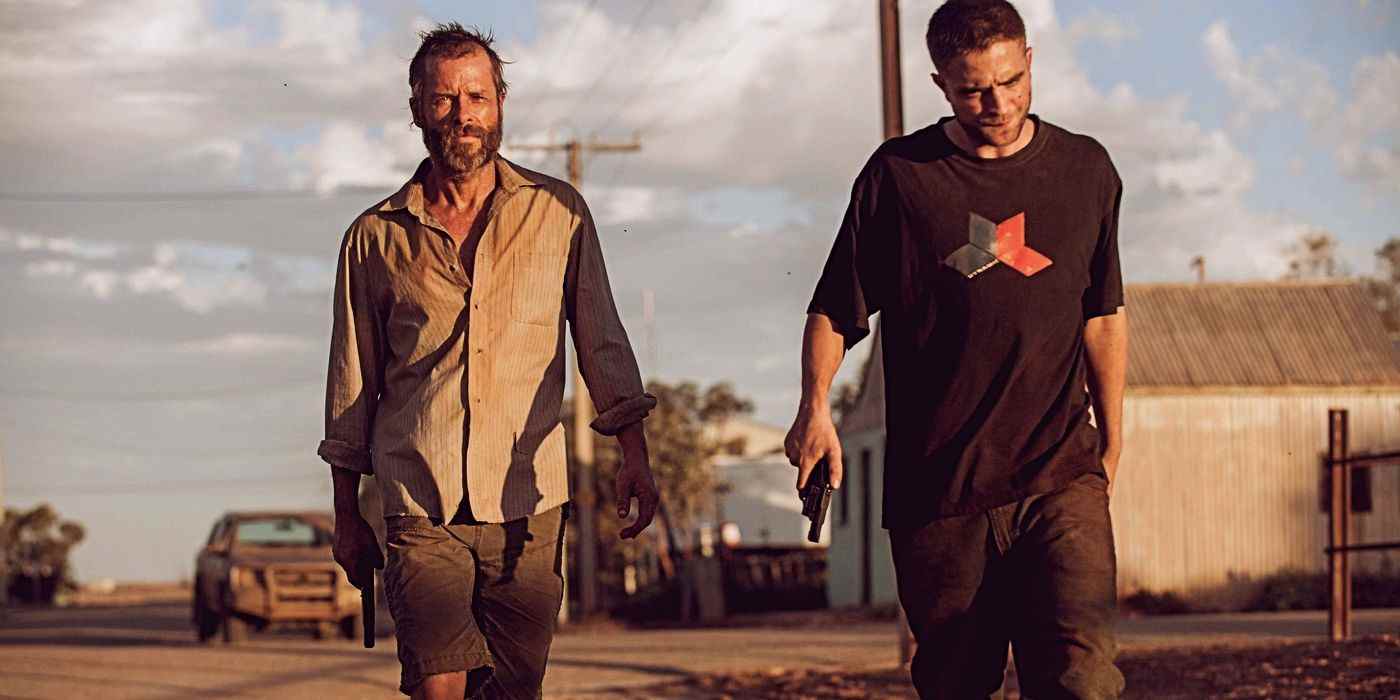
David Michôd’s 2014 dystopian Western drama, The Rover, takes place ten years after a global economic collapse, in which Pattinson slips into the shoes of Reynolds, a naive southern American youngster, who has had a protected existence throughout his life, which withers his sense of independence before bloom, making him dependent on others for survival. The Robert Pattinson movie is thematically and visually reminiscent of the Mad Max franchise, as stated by director Quentin Tarantino, who describes the film as a “mesmerizing, visionary achievement.” Guy Pearce’s violent and bitter rendition of Sam is exceptional, but it’s Pattinson, with his character-enhancing behavioral tics and his earnest portrayal of Reynolds, that takes the audience by surprise.
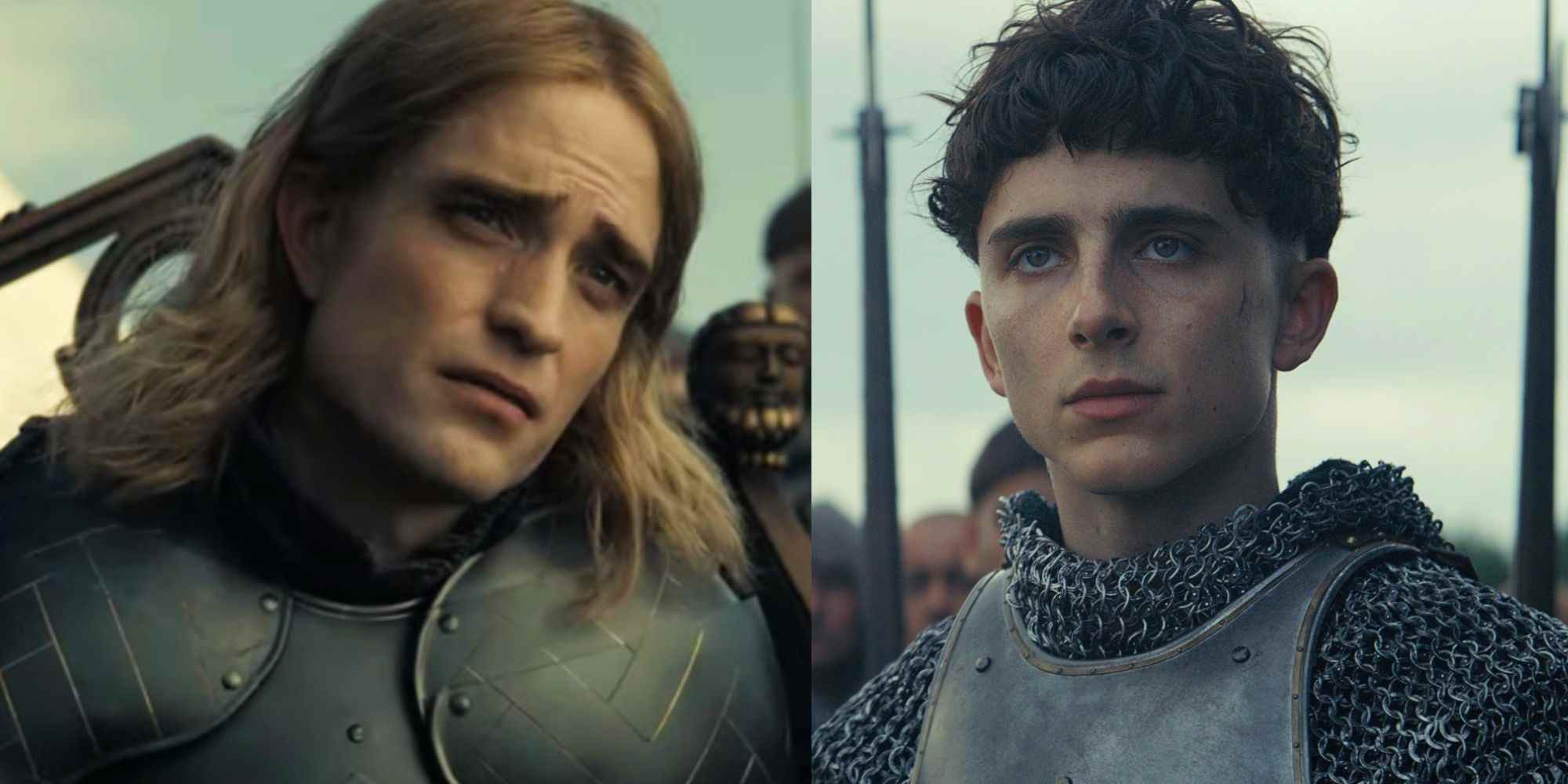
While the Robert Pattinson movie is superb, the actor got blasted for his accent. Based on Shakespeare’s Henriad, The King is another Michôd undertaking, with an ensemble cast led by Timothée Chalamet (Henry V), along with Ben Mendelsohn, Joel Edgerton, Sean Harris, and Robert Pattinson in supporting roles. Pattinson plays Louis, The Dauphin of France, with chaotic flair, replete with an over-the-top accent, which is both hilarious and impressive at the same time. As a historical epic, The King is beautifully shot with a plethora of strong performances, with battle scenes and historical backdrops that are gripping and phenomenal. Chalamet does well as King Henry, imbuing the role with a duality that is part-boyish, part-mature.
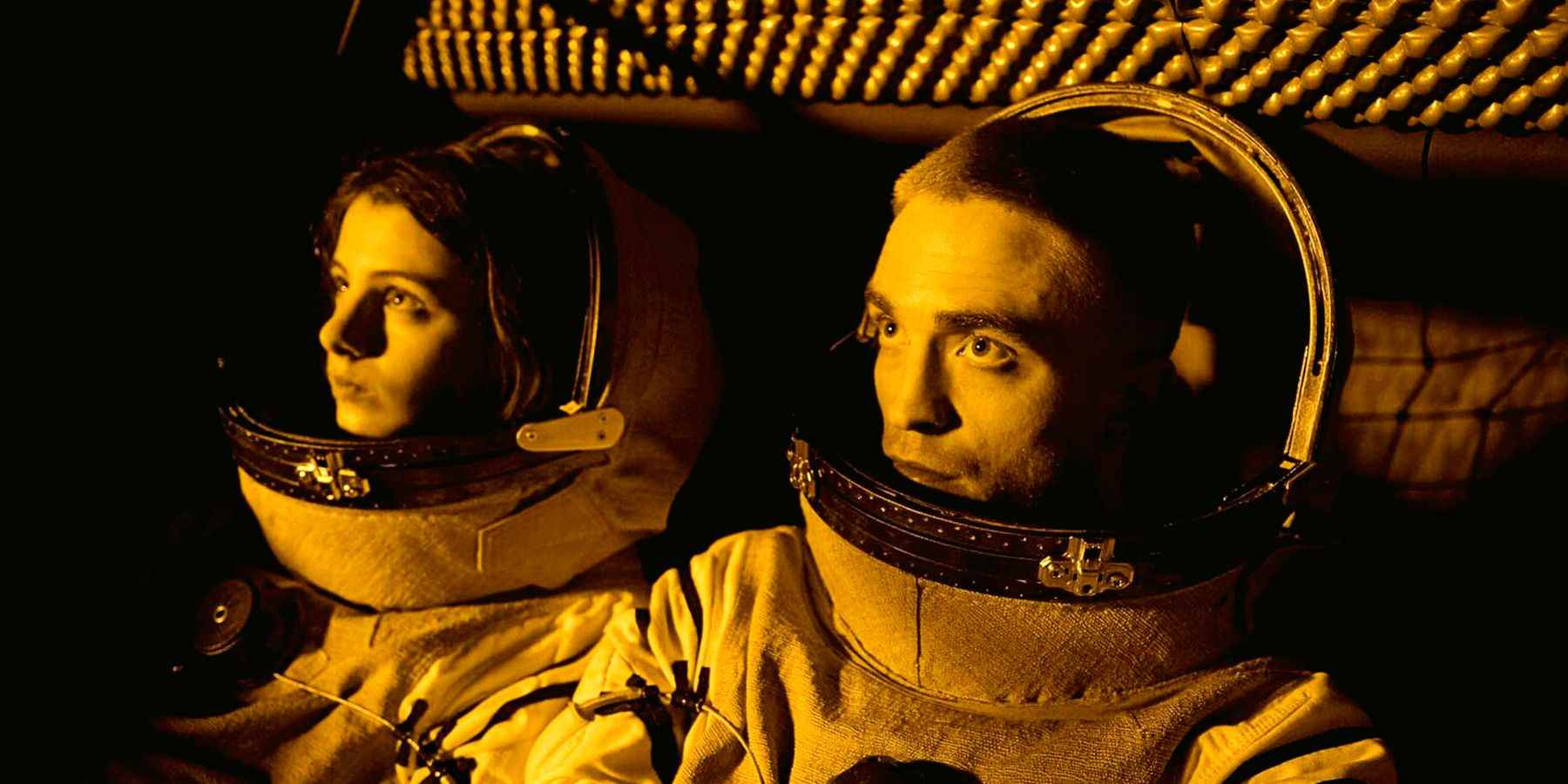
Sporting a non-linear narrative that dabbles in sci-fi horror, Claire Denis’ English-language debut, High Life, revolves around a group of criminals sent on a space mission that includes traveling towards a black hole and taking part in experiments. Pattinson plays Monte, a convict-turned-astronaut, while Binoche dons the robes of the twisted Dr. Dibs – their combined efforts, coupled with arresting visuals and a hypnotic narrative grace, elevates the Robert Pattinson movie to a dark, complex study of humankind at the brink of apocalypse. It’s also interesting to note that the film owes much to Tarkovsky’s Solaris and Kubrick’s 2001: A Space Odyssey in terms of its haunting atmosphere and kaleidoscopic color palette.
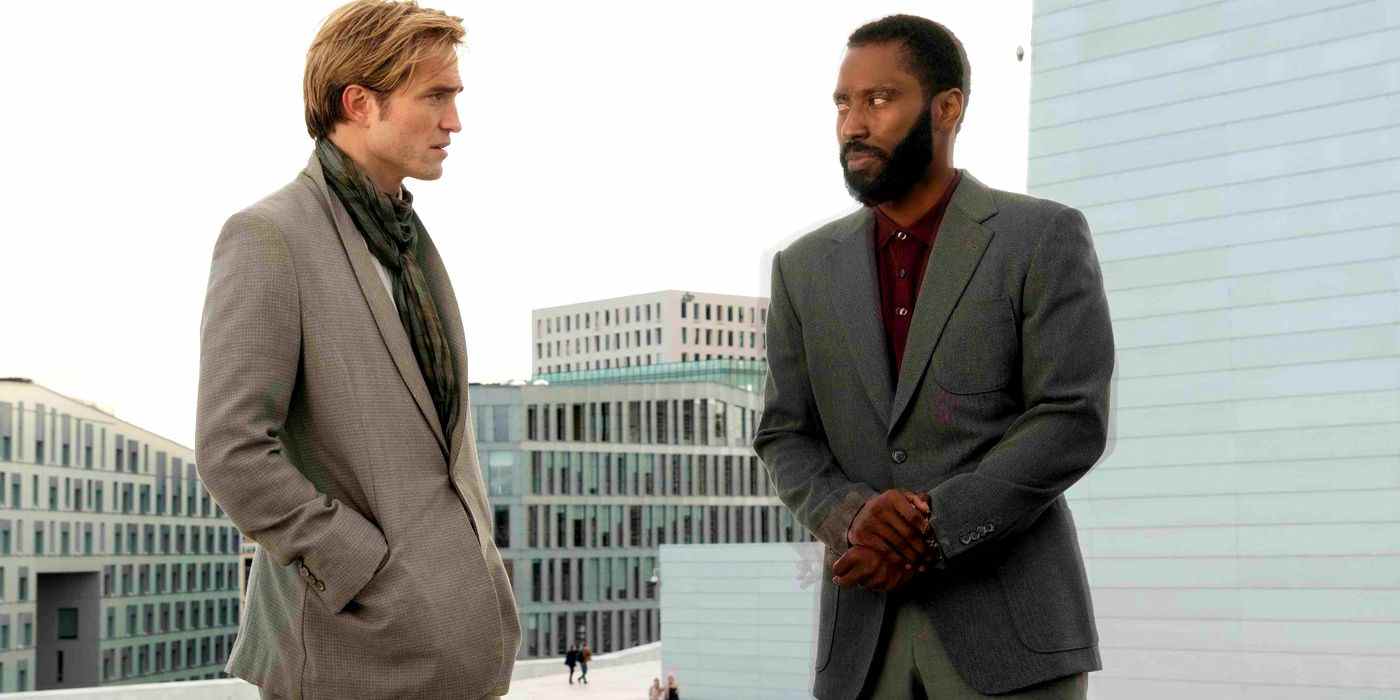
Christopher Nolan’s Tenet features a star-studded cast, including John David Washington, Robert Pattinson, Elizabeth Debicki, Dimple Kapadia, Michael Caine, and Kenneth Branagh. The plot centers on a CIA agent (Washington), who teams up with Neil (Robert Pattinson), in order to manipulate the flow of time to prevent a historically catastrophic event from occurring. Tenet is visually grandiose in sweep and scale, with a convoluted plot that resembles an almost-unsolvable puzzle – but the Robert Pattinson movie is held in place due to its strong performances. Pattinson plays Neil with depth, subtlety, and wit, and the film’s ambitious action sequences are Nolan at his best. However, Tenet lacks a relatable emotional core, leaving room for a certain sense of alienation.
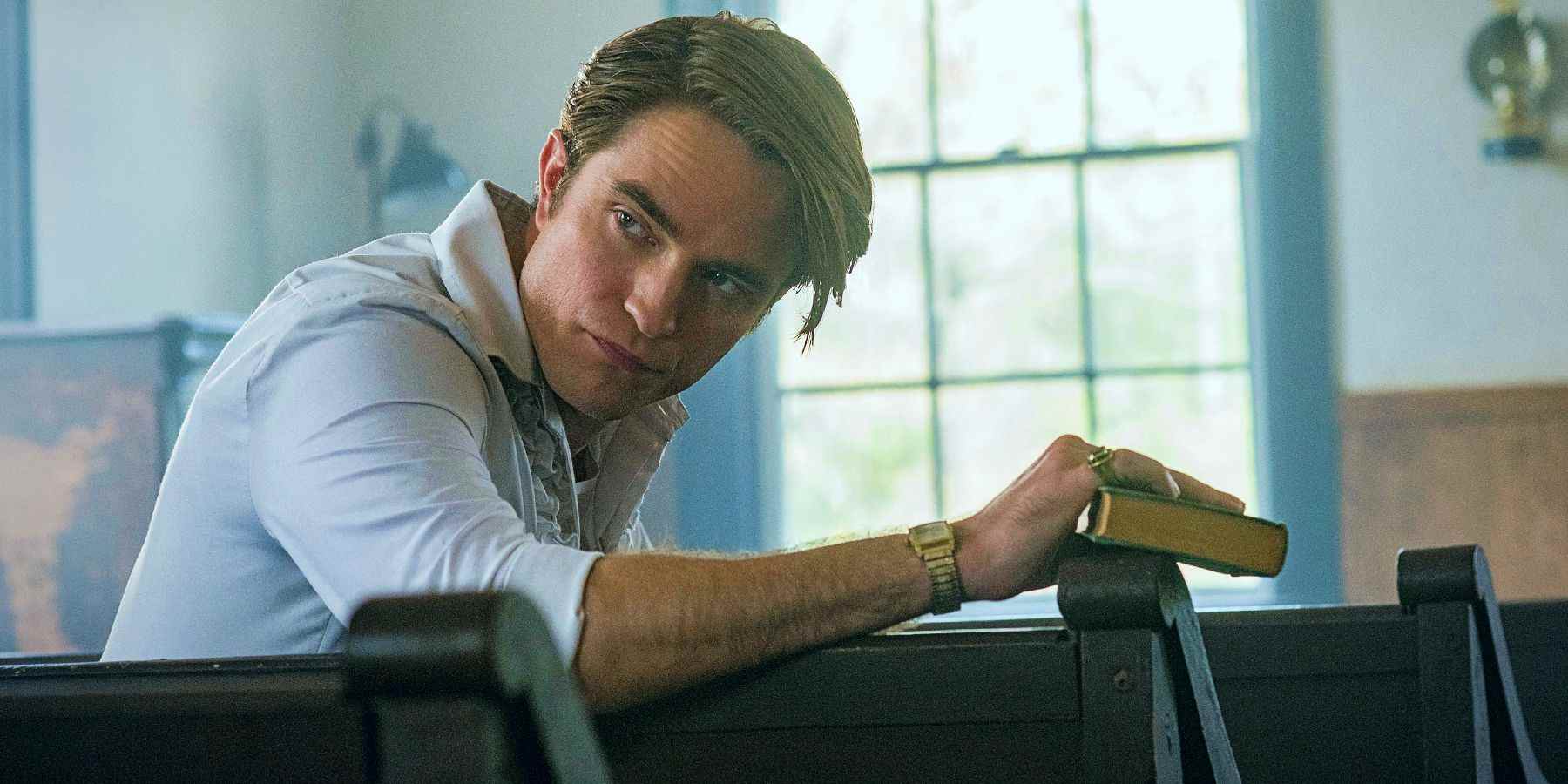
Netflix’s The Devil All The Time is dark, gritty, and harrowing, with compelling performances by a majority of the cast, including Tom Holland, Harry Melling, Bill Skarsgård, Riley Keough, Jason Clarke, Sebastian Stan, Haley Bennett, Eliza Scanlen, with Mia Wasikowska, and of course, Pattinson. While Tom Holland appears much later in the film, his portrayal of the troubled Arvin is both sympathetic and haunting all at once, mapping the arc of his descent into violence with terrific conviction. Pattinson plays Reverend Preston with charismatic sleaze, bringing the character’s corrupt and rotten core to the surface in an exuberantly campy fashion. In essence, the Robert Pattinson movie dives into the murky underbelly of violence and religion in the countryside, painting a noir-addled vignette that could potentially come off as discomfortingly brutal for some viewers.
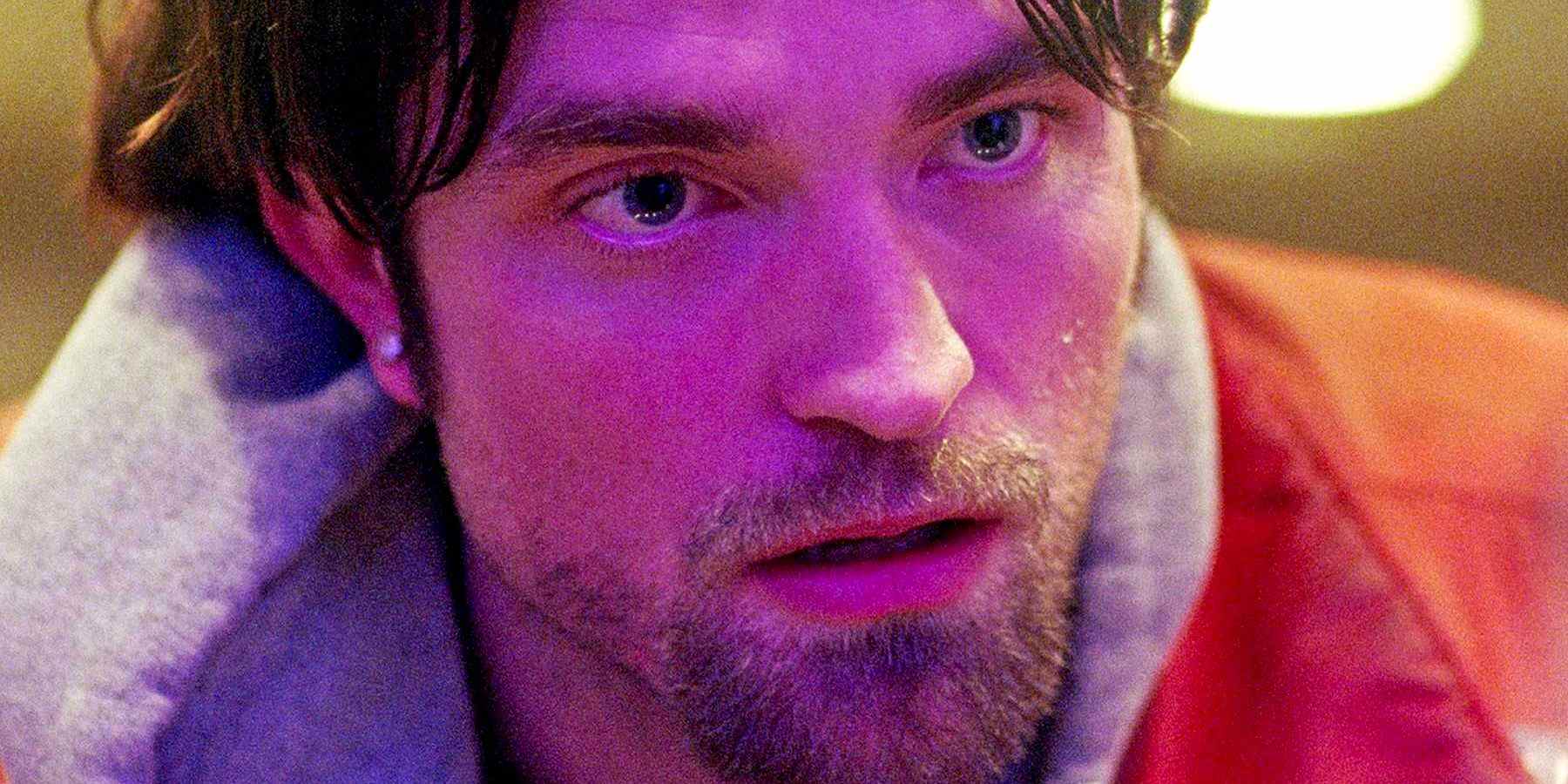
The Safdie Brothers’ 2017 crime thriller, Good Time, stars Pattinson as small-time bank robber Connie, who attempts to free his differently-abled brother (Benny Safdie) from police custody. A distinctive crime drama with genuine stakes and thrills, Good Time commands the audience’s attention with visceral intensity, scores by Tangerine Dream, and a career-defining performance by Pattinson. The Robert Pattinson movie Good Time holds up a mirror, reflecting the uncomfortable truths that plague modern-day America, making it an essential watch. While there are hints of probable character redemption, the narrative leaves several thorny questions behind even after the film ends.
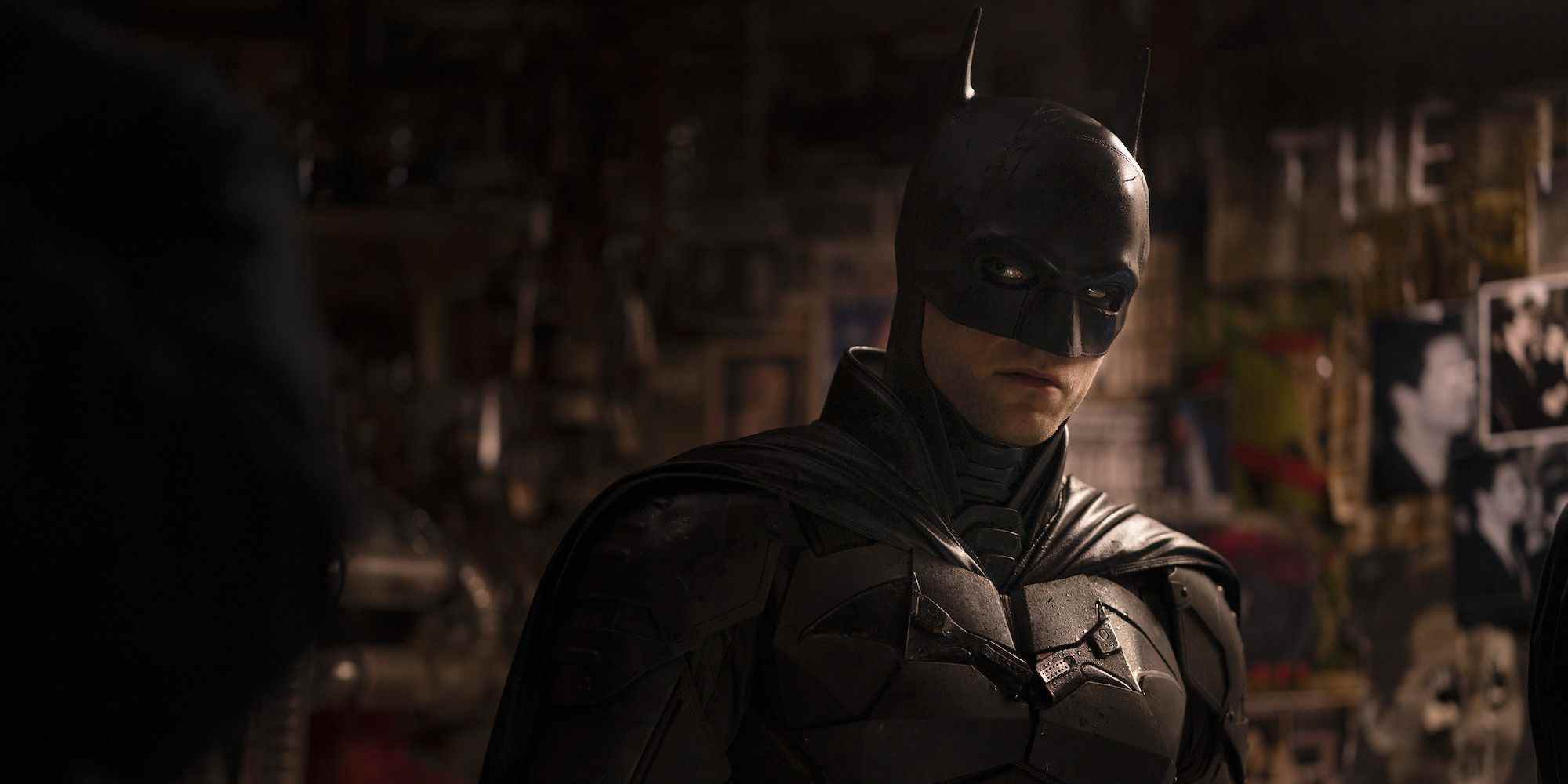
Matt Reeves brought an entirely different kind of superhero to life in the Robert Pattinson movie The Batman. Pattinson plays the titular Bruce Wayne in a way never seen before, originally presented by countless others as a millionaire playboy now a recluse and socially vacant. Reeves takes the story of the hero and runs with it, adding in a litany of characters from the Batman universe as Tim Burton once did while keeping a realistic feel, as Christopher Nolan tried to do. Pattinson’s gritty Batman spends most of the film searching for his true identity as a figure of justice rather than a force of vengeance. Reeves includes comic book homages recognizable to long-time fans in several shots and brings some of the best parts of the Batman universe that The Dark Knight trilogy left out. The only complaint thus far is the movie’s run time, which sits at a whopping 2 hours and 56 minutes.
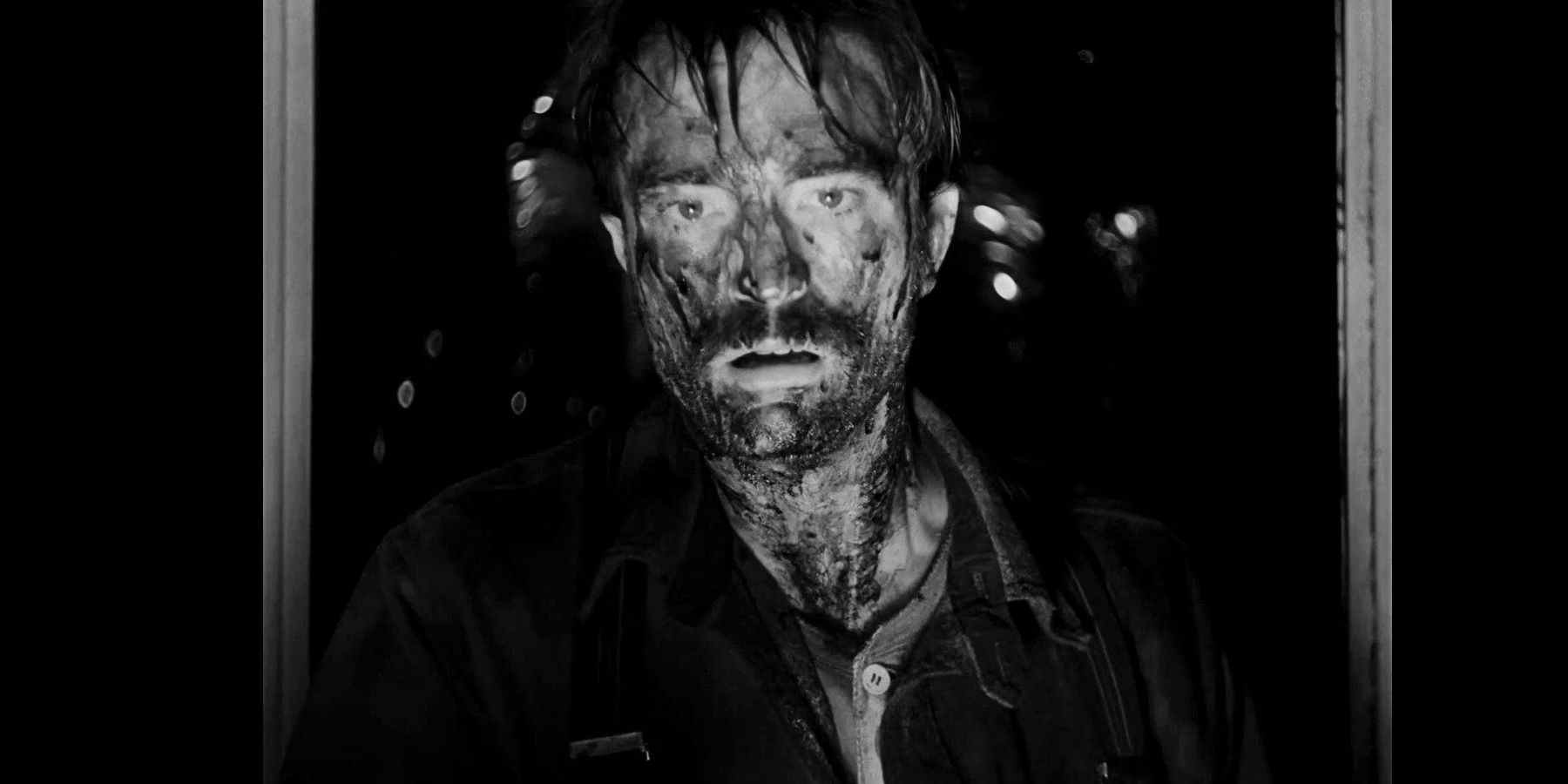
Robert Eggers’ psychological horror, The Lighthouse, is shot in monochrome in 1.19:1 aspect ratio, starring Robert Pattinson and Willem Dafoe, who play two lighthouse keepers driven to insanity while trapped on a remote, eerily-beautiful island. The Robert Pattinson movie’s sojourn into the darkness embedded within the human psyche never feels too heavy or cumbersome, as bleak, dark humor permeates the narrative at almost all times. Shot in Nova Scotia, The Lighthouse is crafted with extraordinary skill (as exemplified by Eggers in The VVitch) and features powerhouse performances by both Pattinson and Dafoe, who are locked in a mad dance akin to a fever dream, against a desolate, windswept backdrop that comes alive to haunt one’s nightmares.
